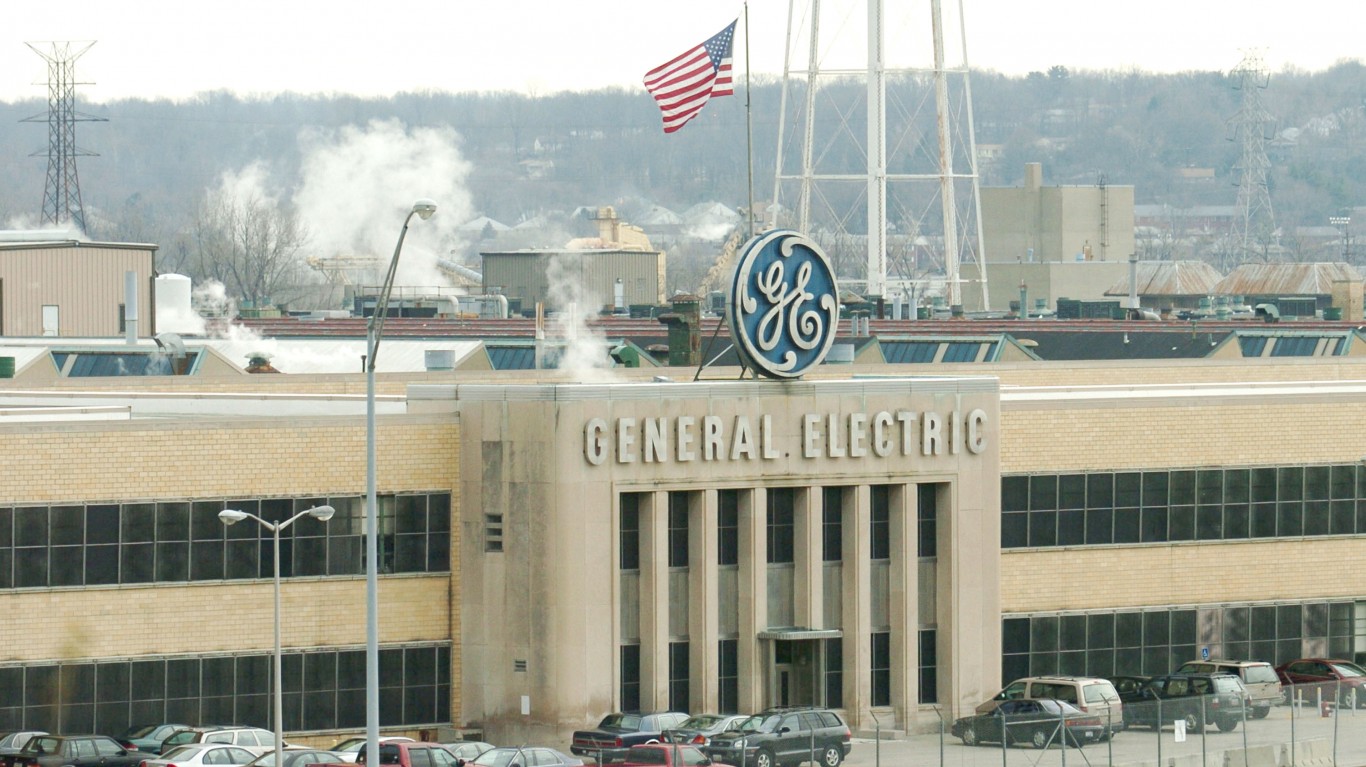

General Electric Co. (NYSE: GE) reported third-quarter 2019 results before markets opened Wednesday. The conglomerate reported adjusted earnings per share (EPS) of $0.15 on revenues of $23.4 billion. In the same period a year ago, GE reported adjusted EPS of $0.14 on revenues of $23.4 billion. Third-quarter results also compare to the consensus estimates for EPS of $0.11 on revenues of $22.93 billion.
On a GAAP basis, GE posted a net loss of $0.15 per share. Included were a loss of $0.09 per share to cover a $1 billion premium deficiency revealed in its insurance business and a goodwill impairment to its hydro business of $0.08. The company also completed its deconsolidation of Baker Hughes and recorded a pretax cost of $8.7 billion as discontinued operations.
Chair and CEO H. Lawrence Culp Jr. said:
Our results reflect another quarter of progress in the transformation of GE. We are encouraged by our strong backlog, organic growth, margin expansion, and positive cash trajectory amidst global macro uncertainty. … This quarter, during strategy reviews with each of our businesses, we identified and prioritized operating improvements and growth investments that will drive sustainable results.
GE maintained its outlook for revenue growth in its Industrial segment at mid-single digits and its full-year adjusted EPS range at $0.55 to $0.65. The Industrial segment’s free cash flow estimate was raised from a prior range of negative $1 billion to positive $1 billion to a new range of flat to up $2 billion. Margin expansion in the Industrial segment remained unchanged at flat to up approximately 100 basis points. Estimated restructuring expenses and restructuring cash were both decreased.
The Power segment posted third-quarter revenue of $3.93 billion, down 14% year over year. The segment posted a net loss of $114 million, an improvement of 79% from a year-ago loss of $676 million. New orders fell by 30% year over year to $3.86 billion.
The Renewable Energy segment reported quarterly revenue of $4.43 billion, up 13% but a net loss of $98 million, compared to a net profit of $116 million a year ago. The company said the loss was driven by higher losses on legacy contracts, pricing (although stabilizing at the orders level), tariffs and increased R&D investment, partially offset by cost productivity and strong volume.
The Aviation segment saw a revenue boost of 8% to $8.11 billion and profit of $1.72 billion, up 3% year over year. Healthcare revenue rose by 5% to $4.92 billion while profit rose by 13% to $974 million.
As we noted in our Tuesday preview of this report, GE’s long-term care (LTC) insurance business run-off may be of special concern to investors. This was the source of an August screed by short-seller Harry Markopoulos who claimed that GE needed $18.5 billion in cash immediately in order to top-up its reserves against future claims. GE disputed the number, saying that its own forecast indicated only minimal LTC funding requirements.
GE added $5.9 billion to its future LTC reserve in the third quarter, a total the company attributed to “higher unrealized gains within the investment security portfolio supporting our insurance contracts in response to decreased market yields.” That’s hardly a “minimal” amount, but neither is it $18.5 billion.
Industrial free cash flow totaled $650 million in the third quarter, down from $1.14 billion in the third quarter of last year. For the first three quarters of the year, GE’s free cash flow is negative $1.56 billion. The total does not include cash used for business sales taxes or contributions to GE’s pension plan. Last year’s computation for the quarter included $5.08 billion in pension plan funding. Earlier this month the company said it would implement changes to its pension plan that would save the company up to $8 billion and lower its Industrial segment debt by as much as $6 billion.
The good news for GE is that investors liked what they heard and pushed the stock up by more than 6% to $9.60 in Wednesday’s premarket trading. Shares closed flat on Tuesday at $9.07, in a 52-week range of $6.40 to $11.30. The consensus 12-month price target on the stock is $10.11.
Thank you for reading! Have some feedback for us?
Contact the 24/7 Wall St. editorial team.
 24/7 Wall St.
24/7 Wall St.


